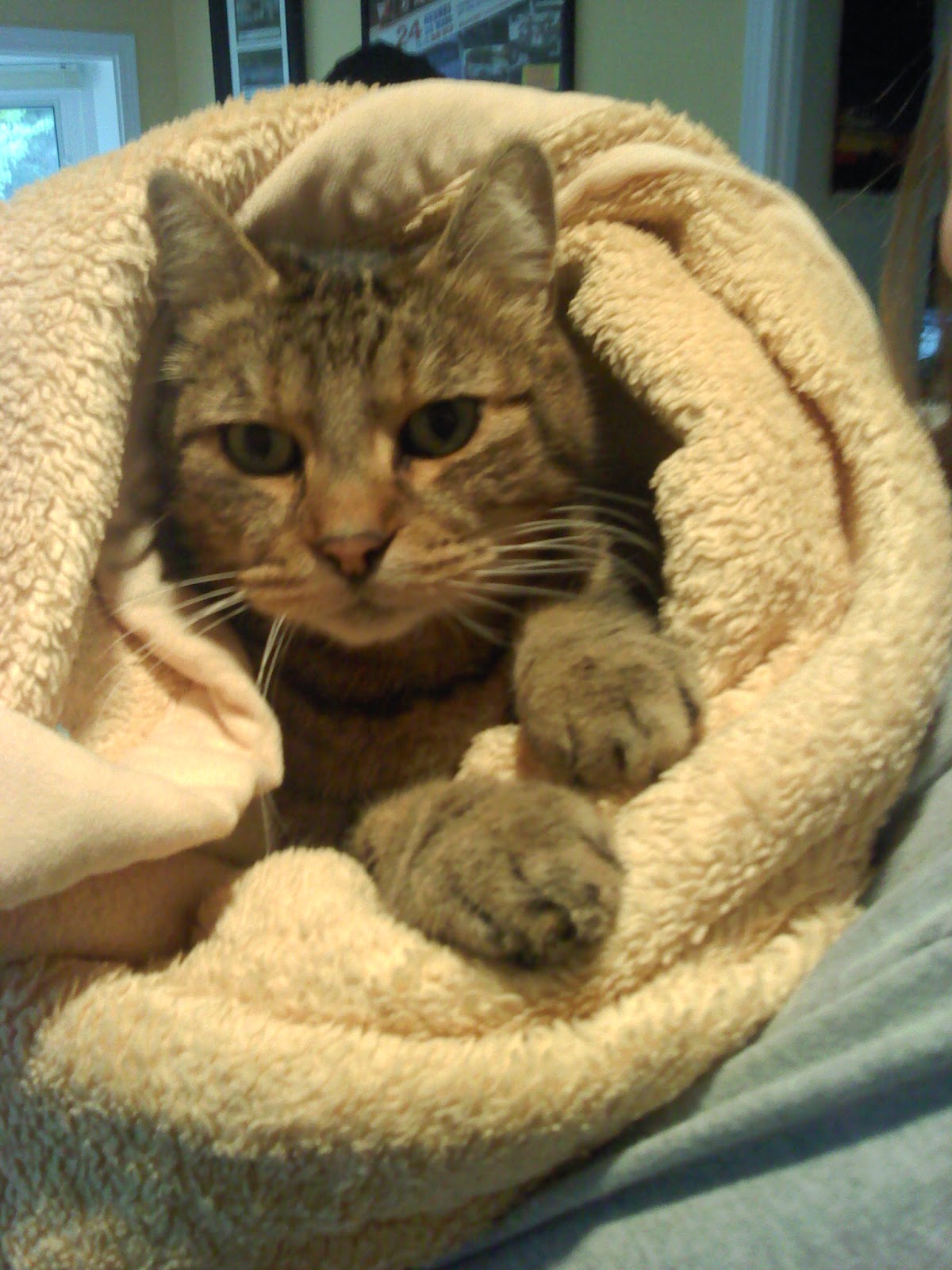Many pets have a reputation for eating things they're not supposed to. This is no more true than during the holiday season when little things can get over looked, or when visiting relatives think they're doing something nice for your pet. Here's a list of the most ingested items over the holidays that you should keep a careful eye on:
- Alcohol - Do NOT allow your pet to ingest any amount of alcohol. Seemingly harmless amounts of alcohol can be harmful to your pet, causing depression of the nervous system, decreasing your pet's heart rate and lowering body temperature.
- Foods containing grapes, raisins or currants (like fruit salad or fruit cake) - these fruits can be toxic to your pet.
- Anything "sugarless" - these food items usually contain xylitol, an artificial sweetener that is toxic to your pets.
- Turkey and ham bones - these bones, if ingested by your dog or cat, can splinter and break causing an obstruction in their digestive system.
- Chocolate - the darker the chocolate, the more toxic. Only one once of milk chocolate can be toxic to a 20 pound dog.
- Holiday Plant Life - Poinsettia, Lily, Holly, Mistletoe are all toxic to your pets, even in very small amounts.
- Tree trimmings/pine needles - ingesting these items can give your pet a sick tummy. Keep an eye on your furry friends around the tree.
- Ornaments/Tinsel - especially if you have a cat, or a very curious dog, be wary of any decorations you have on your tree, or around your home. Ingesting ornaments or tinsel can be very harmful for your pet.
- Imported Snow globes - a traditional holiday gift, these beautiful little bulbs contain antifreeze, which is toxic to your pet (as well as humans).
- Liquid Potpourri/Candles - Do NOT allow candles to be lit while not supervising the area. Not only can they be hot and scald your pet, but the chemicals in scented candles can be toxic if ingested.
***IF YOU NOTICE YOUR PET BEHAVING ODDLY, OR SUSPECT THEY'VE INGESTED ONE OR MORE OF THE ITEMS LISTED ABOVE, SEEK EMERGENCY CARE***
At Lombard Animal Hospital, in Portland, Oregon we strive to increase the quality of life for pets and their people through education,
nutrition and wellness!
Give us a call -- We'd love to see you and your pets!
503.285.2337























